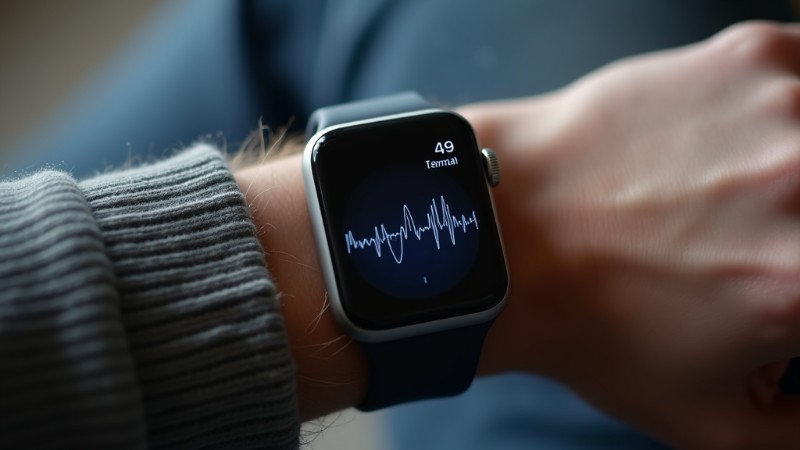Restful sleep is essential to maintaining overall health and well-being, particularly for seniors. While nighttime rest forms the foundation for energy and cognitive function, a short, well-timed nap can provide valuable supplementary benefits. Studies reveal that napping can enhance alertness, mood, and memory, counteracting some of the natural cognitive changes that accompany aging.
Here’s an in-depth guide on how older adults can make the most of napping for optimal health, the best timing and techniques, and when frequent daytime sleepiness might indicate an underlying issue.
Key Takeaways
Napping can enhance alertness, mood, and memory in seniors by providing supplementary benefits to nighttime rest.
- Short naps of 10-30 minutes can improve cognitive function, reduce fatigue, and boost emotional resilience in seniors.
- Regular napping can lead to improved cognitive function, alertness, and reduced risk of chronic illnesses in older adults.
- Establishing a mindful napping routine can support overall well-being, improve memory, and enhance energy levels in seniors.
Why napping matters for senior health
Aging often brings changes in sleep patterns, making restorative sleep harder to achieve. Lighter, more fragmented sleep can lead to frequent awakenings and a reduction in deep sleep stages, resulting in daytime fatigue. Although total sleep needs don’t significantly change with age, many seniors benefit from naps to supplement nighttime rest and improve overall well-being. Research indicates that short daytime naps can reduce fatigue, enhance mental alertness, and boost emotional resilience.
For seniors dealing with chronic pain, restless leg syndrome, or respiratory issues, naps offer essential relief and recharging. Dr. Timothy A. Roehrs, a sleep medicine expert at Henry Ford Health, emphasizes that a midday nap can be beneficial at any age but may be especially valuable for older adults because it can restore the energy lost from a less restful night’s sleep.
Memory and cognitive benefits of napping for seniors
Short naps can help combat cognitive decline and memory impairment in seniors by improving information retention and reducing mental fatigue. A “power nap” of 10 to 20 minutes is effective for boosting mental clarity, while longer naps of 60 to 90 minutes can offer deeper rest.
Research indicates that brief rest periods enhance memory retention, spatial awareness, and reaction time, while also stabilizing mood. These benefits are particularly important for seniors, as studies show that regular napping can lead to improved cognitive function and alertness compared to those who do not nap.
Emotional and physical health benefits
Napping also supports emotional health, helping seniors manage mood swings and irritability linked to disrupted sleep or health conditions. A quick nap can boost mood, reduce stress, and even lower blood pressure, which may benefit heart health.
Physically, napping aids immune health as well. Studies show that naps enhance immunity, which is vital as natural defenses tend to weaken over time. Napping also lowers cortisol levels, the body’s primary stress hormone, offering anti-inflammatory effects that support overall resilience.
The do’s of napping for seniors
Knowing when and how to nap is crucial to reaping the health benefits without impacting nighttime sleep. Here are a few best practices:
Keep naps short: The ideal nap length for seniors is usually between 10 to 30 minutes. This duration enables them to reap the benefits of napping without entering deeper sleep stages, which can cause grogginess and disrupt nighttime rest. For those who can handle it, a nap of up to 90 minutes may also be beneficial, as it allows the body to complete a full sleep cycle.
Nap early in the day: The best time for a nap is in the early afternoon, typically between 1 p.m. and 3 p.m. This period aligns with a natural dip in the circadian rhythm, making it easier to fall asleep and wake up refreshed. Late afternoon naps can disrupt nighttime sleep, so it’s best to avoid napping after 4 p.m.
Create a relaxing environment: A quiet, dark, and cool space is ideal for a nap. Utilizing blackout curtains, an eye mask, or earplugs can help eliminate distractions and promote restful sleep. For those who nap regularly, establishing a routine in a familiar, comfortable location—like a favorite chair or supportive recliner—can enhance the experience.
Set an alarm: Many seniors worry about oversleeping and disrupting their nighttime rest. Setting an alarm for 20 to 30 minutes can help maintain focus, allowing for a refreshing nap without lingering drowsiness. This approach makes it easier to incorporate napping into a daily routine without the concern of “sleeping the day away.”
The don’ts of napping
While napping has numerous benefits, it’s essential to avoid certain pitfalls that can negatively affect both daytime and nighttime sleep.
Avoid long naps: Long naps exceeding an hour can result in deep sleep stages, leading to grogginess upon waking. This disoriented feeling, known as sleep inertia, can make it difficult to resume activities right away. For seniors, this grogginess may pose safety risks, especially when engaging in tasks like cooking, driving, or climbing stairs.
Skip naps if they’re causing insomnia: If you notice that regular napping interferes with falling asleep at night, it may be best to skip naps altogether. Some seniors may experience more sleep disturbances after daytime naps, so if nighttime insomnia is a concern, consider shorter or less frequent naps.
Don’t rely on naps to compensate for poor nighttime sleep: While napping can be beneficial, it’s not a substitute for quality nighttime sleep. Chronic sleep problems should be discussed with a healthcare provider, as they may signal sleep apnea, insomnia, or other health issues that affect nighttime rest.
Recognizing signs of sleep disorders
Seniors who frequently feel the need to nap or experience intense daytime sleepiness might be dealing with a sleep disorder. Sleep apnea, restless leg syndrome, or even depression can contribute to poor nighttime sleep and increased daytime fatigue. If you find yourself needing naps daily and still feeling tired afterward, this could be a sign of an underlying sleep disorder. Consulting with a healthcare professional can help diagnose and treat any sleep disruptions, allowing for a healthier overall sleep routine.
Strategies for making naps part of your routine
Establishing a napping routine can enhance the benefits of daytime rest. Here are some tips to incorporate naps effectively:
Align naps with your body’s natural rhythm: Pay attention to your daily energy levels. If you regularly feel tired around the same time each day, try incorporating a nap at that time.
Try the “caffeine nap”: For seniors who tolerate caffeine, a “caffeine nap” can be effective. Drink a small cup of coffee or tea right before lying down for a nap. It takes about 20 minutes for caffeine to kick in, so by the time you wake up, you may feel extra alert.
Allow time to reorient: After a nap, take a few minutes to stretch or do light physical activity. Moving around can help reduce grogginess and make it easier to get back into your day.
Make napping part of your self-care routine: Instead of seeing naps as “laziness” or something to feel guilty about, recognize them as an essential part of self-care. If you’re experiencing high levels of stress, a quick nap can be a simple, accessible way to support both your mental and physical health.
When to seek medical advice
While napping can be beneficial, seniors who experience persistent fatigue or an increased need for sleep should speak with a healthcare provider. Conditions like thyroid imbalances, depression, or medication side effects may contribute to excessive daytime sleepiness. Moreover, certain medications, particularly those for hypertension or anxiety, can disrupt nighttime sleep, making napping necessary.
Napping for a healthier, happier life
For seniors, the art of napping serves as a powerful tool to enhance well-being. With a mindful approach, short, intentional naps can improve memory, boost energy, support emotional health, and even reduce the risk of chronic illnesses. Moderation is essential, as brief naps can provide benefits without disrupting nighttime sleep, helping maintain a balanced sleep routine.
A well-timed nap goes beyond a simple midday break; it offers an opportunity to recharge and prioritize self-care. By embracing a thoughtful napping strategy, seniors can experience a higher quality of life, gaining the energy and mental clarity needed to fully enjoy each day.















